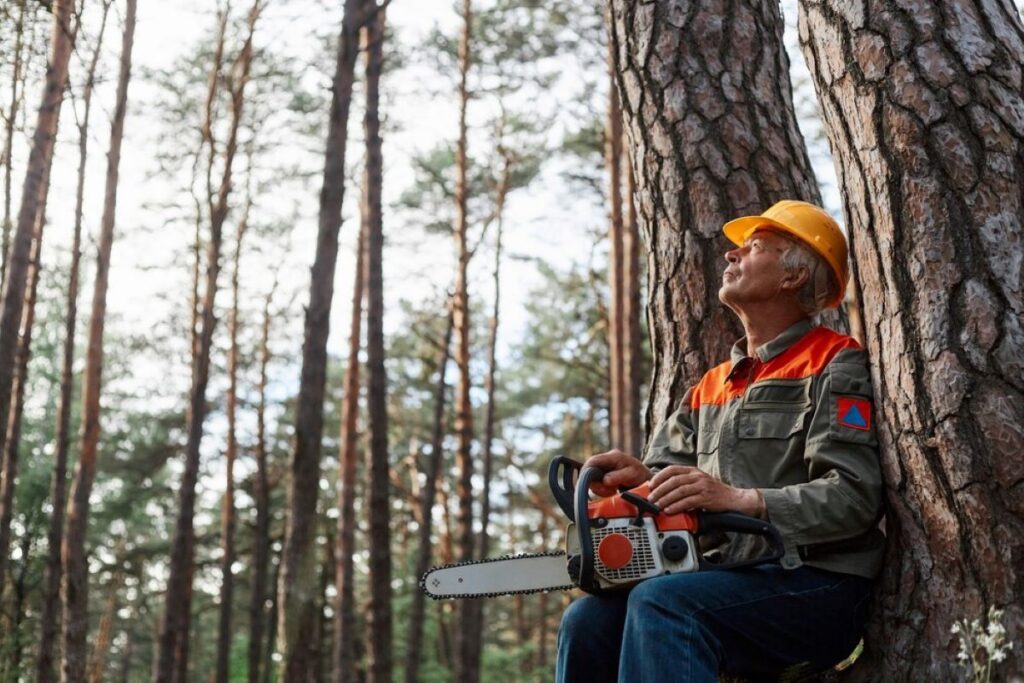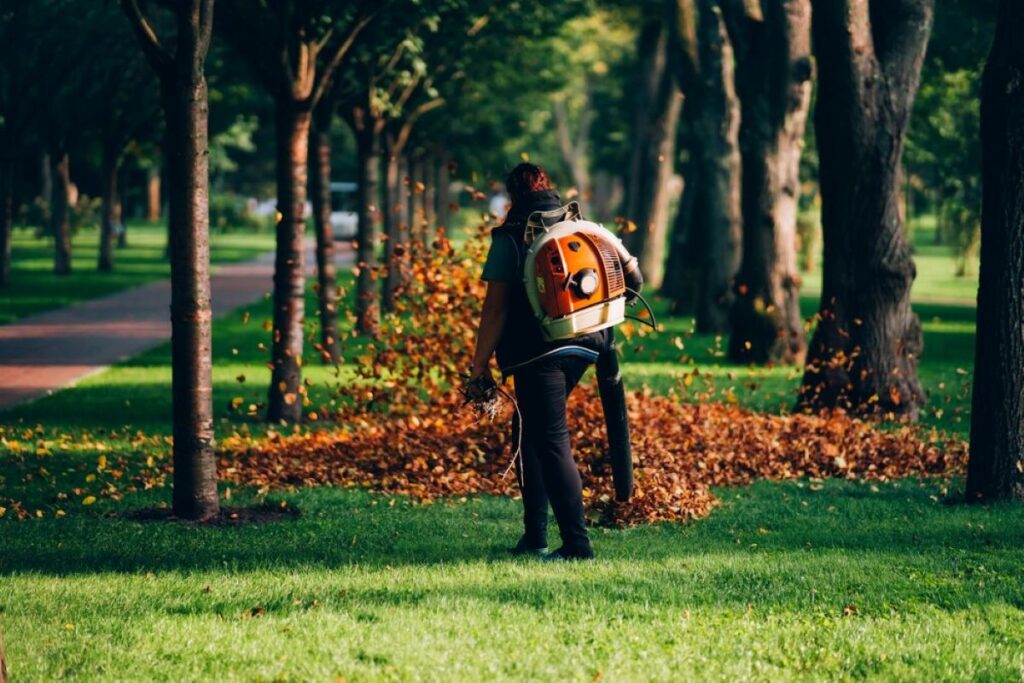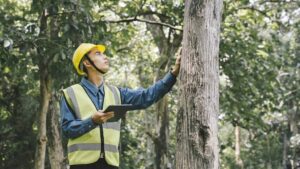Finding the Right Arborist Sydney: 5 Questions You Need to Ask
When it comes to maintaining the health and beauty of your trees, hiring a qualified arborist is essential. In Sydney, where the climate can be both a blessing and a challenge for tree health, finding the right professional can make all the difference. However, not all arborists are created equal. To ensure you make the best choice, here are five crucial questions to ask when selecting an arborist in Sydney.
1. What Qualifications and Certifications Do You Hold?
Before hiring an arborist, it's vital to verify their qualifications. Arboriculture is a specialised field that requires extensive knowledge of tree biology, pest management, and safety practices. In Australia, reputable arborists often hold certifications from recognised organisations such as Arboriculture Australia or the International Society of Arboriculture (ISA).
Additionally, inquire about their training and any ongoing education they pursue. The field of arboriculture is constantly evolving, and a dedicated professional will stay updated with the latest techniques and regulations. This commitment to continuous learning can be a significant indicator of their expertise.
Understanding Qualifications
Qualifications can vary widely among arborists. Some may have formal degrees in horticulture or environmental science, while others may have completed vocational training. Understanding the level of education and training your potential arborist has received can help you gauge their competence. For instance, a degree in horticulture often encompasses a broad understanding of plant biology, soil science, and landscape management, which can be invaluable when assessing the health of your trees. Furthermore, hands-on experience gained through internships or apprenticeships can significantly enhance an arborist's practical skills, allowing them to handle various tree-related challenges effectively.
Importance of Certifications
Certifications often demonstrate a commitment to professional standards and ethics. An arborist who is certified is likely to adhere to best practices in tree care, ensuring that your trees receive the highest level of service. Always ask to see their certifications and check their validity. Moreover, many certifications require ongoing education and re-certification, which ensures that the arborist remains informed about the latest industry developments, safety protocols, and environmental considerations. This is particularly important in a world where climate change and urban development are increasingly impacting tree health and biodiversity. An arborist who is engaged with these issues is more likely to provide sustainable and effective solutions for tree management.
2. Can You Provide References or Testimonials?
One of the best ways to assess an arborist's capabilities is through the experiences of previous clients. A reputable arborist should be more than willing to provide references or testimonials from satisfied customers. These insights can offer a glimpse into the quality of work you can expect.
When speaking to references, consider asking specific questions about the arborist's punctuality, professionalism, and the results of their work. Did they complete the job on time? Were they respectful of the property? Did they leave the site clean and tidy? These details can help you make a more informed decision.
Online Reviews
In addition to personal references, online reviews can provide valuable insights. Websites such as Google, Yelp, or local community forums often feature reviews from past clients. Pay attention to both positive and negative feedback to get a balanced view of the arborist's reputation.
Case Studies
Some arborists may even have case studies or portfolios showcasing their previous work. Reviewing these can give you a better understanding of their style, the types of projects they handle, and their overall expertise. This can be particularly useful if you have specific needs or concerns regarding your trees.
Furthermore, it is worth noting that many professional arborists are members of recognised industry associations, which often have their own vetting process for members. These associations may also provide additional resources, such as guidelines for best practices and continuing education opportunities, ensuring that the arborists stay updated on the latest techniques and safety measures. This affiliation can serve as an additional layer of assurance regarding their professionalism and commitment to quality.
Lastly, consider the importance of a personal connection when selecting an arborist. A good arborist will not only demonstrate technical skill but will also take the time to listen to your concerns and preferences. During initial consultations, observe how they communicate and whether they are willing to answer your questions thoroughly. This rapport can be crucial, especially for ongoing maintenance or larger projects, as it sets the tone for a collaborative relationship moving forward.

3. What Services Do You Offer?
Arborists in sydney can provide a wide range of services, from tree pruning and removal to pest management and health assessments. It’s essential to understand what specific services the arborist offers and whether they align with your needs. Some arborists specialise in certain areas, while others may provide a comprehensive range of services.
For instance, if you require tree removal, ensure the arborist has experience in this area, as it requires specific skills and equipment. Conversely, if you need ongoing maintenance, look for someone who offers regular tree care services. Regular maintenance not only enhances the aesthetic appeal of your landscape but also promotes the health and longevity of your trees, preventing potential issues before they arise.
Specialisation vs Generalisation
While some arborists are generalists, others may specialise in particular types of trees or specific tree care techniques. If you have unique tree species or specific concerns, it may be beneficial to choose an arborist with relevant expertise. This ensures that your trees receive the best possible care tailored to their needs. For example, certain species may be more susceptible to specific pests or diseases, and a specialist will have the knowledge to implement targeted treatments effectively, ensuring the vitality of your trees.
Emergency Services
Tree emergencies can occur at any time, whether due to storms, disease, or damage. Inquire whether the arborist offers emergency services and their response times. Having a reliable professional on hand during emergencies can save you time and potentially prevent further damage to your property. Additionally, it’s wise to ask about their safety protocols and insurance coverage, as this can provide peace of mind knowing that both your property and the workers are protected during any urgent interventions.
Moreover, some arborists may also offer consultation services to help you assess the overall health of your trees and landscape. This can include advice on tree selection for new plantings, soil health assessments, and recommendations for fertilisation or irrigation systems. Such proactive measures can significantly enhance the resilience of your trees and ensure that your garden flourishes for years to come, creating a vibrant and sustainable environment.
4. What Is Your Approach to Tree Care?
Understanding an arborist's approach to tree care can provide insight into their philosophy and methods. Some arborists may prioritise aesthetic pruning, while others focus on the long-term health of the tree. Discussing their approach can help ensure it aligns with your expectations and the needs of your trees.
Inquire about their methods for assessing tree health. Do they conduct visual inspections, or do they use advanced diagnostic tools? A thorough assessment is crucial for developing an effective care plan tailored to the specific needs of your trees. Many arborists utilise a combination of techniques, including soil testing and tree vigour assessments, to gain a comprehensive understanding of the tree's condition. This holistic approach not only identifies existing issues but also anticipates potential future problems, allowing for proactive care that can extend the lifespan of your trees.
Environmental Considerations
In today's world, environmental sustainability is more important than ever. Ask the arborist about their practices regarding eco-friendly tree care. Do they use organic pest control methods? How do they handle waste disposal? An arborist who prioritises sustainability can help ensure that your tree care practices are beneficial for the environment. Additionally, consider their approach to biodiversity; a knowledgeable arborist will understand the importance of maintaining a diverse ecosystem and may recommend planting native species that support local wildlife. This not only enhances the beauty of your landscape but also contributes positively to the surrounding environment.
Safety Protocols
Safety should always be a priority when it comes to tree care. Inquire about the safety measures the arborist employs during their work. This includes the use of personal protective equipment (PPE), adherence to safety regulations, and their procedures for handling hazardous situations. A professional arborist will have a clear safety plan in place to protect both their team and your property. Furthermore, they should be well-versed in the latest industry standards and best practices, ensuring that all work is conducted with the utmost care. This might involve regular training sessions for their team, as well as thorough risk assessments before commencing any project, thereby minimising the likelihood of accidents and ensuring a safe working environment for everyone involved.
See Also : Safe and Efficient Sydney Tree Lopping: What You Should Know
5. What Are Your Pricing and Payment Policies?
Understanding the cost of services is crucial for budgeting and avoiding unexpected expenses. When discussing pricing, ask for a detailed breakdown of the costs involved. This can include labour, equipment, and any additional services required. A transparent pricing structure will help you understand what you are paying for and why.
Additionally, inquire about their payment policies. Do they require a deposit? What forms of payment do they accept? Knowing these details upfront can help you plan accordingly and avoid any surprises when the work is completed.

Quotes and Estimates
Many arborists will provide free quotes or estimates for their services. It’s advisable to obtain quotes from multiple arborists to compare prices and services. However, be cautious of prices that seem too good to be true, as they may indicate a lack of experience or quality.
Insurance and Liability
Ensure that the arborist carries adequate insurance coverage. This protects both you and the arborist in case of accidents or damage during the job. Request proof of insurance and verify its validity. A professional arborist should have public liability insurance and workers' compensation to safeguard against potential liabilities.
Conclusion
Choosing the right arborist in Sydney is a significant decision that can impact the health and longevity of your trees. By asking these five essential questions, you can make an informed choice and find a professional who meets your needs. Remember to prioritise qualifications, references, services offered, care approaches, and pricing policies as you navigate your options.
Investing in the right arborist not only enhances the beauty of your landscape but also ensures the well-being of your trees for years to come. With the right professional by your side, you can enjoy the many benefits that healthy trees bring to your property.


